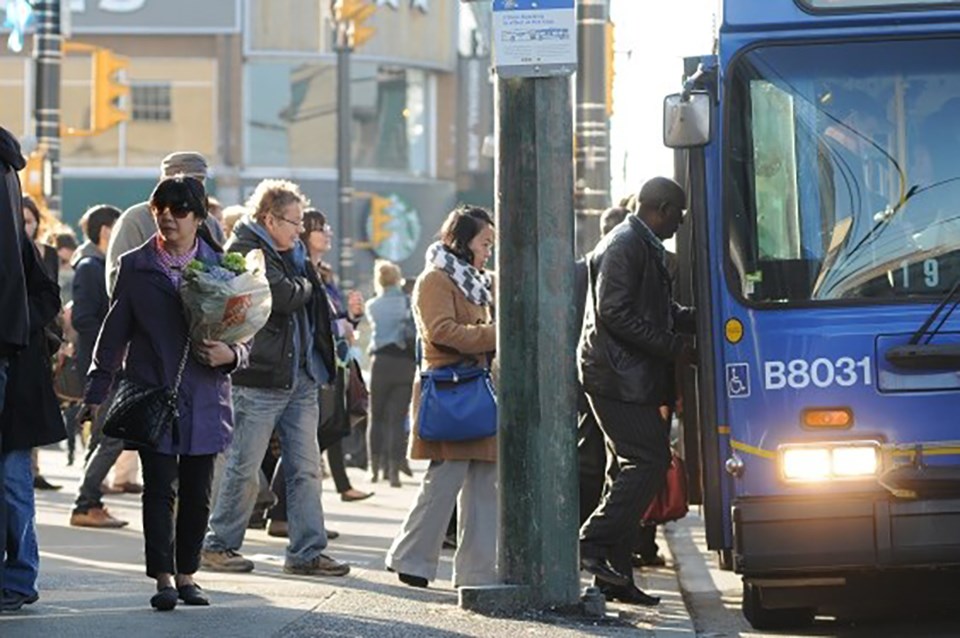On May 26, the Mayors’ Council on Regional Transportation approved a new investment plan to keep TransLink’s finances stable through 2024 – but it means raising property taxes in the region by about $3 a household in 2023.
Raising taxes a concern for large and small communities
The Mayors’ Council approved the plan for Metro Vancouver’s transportation system unanimously, though Burnaby Mayor Mike Hurley and others expressed concerns approving a property tax increase would set a precedent.
“I will hold my nose and support the plan, which is a good plan overall – but from the property tax perspective it’s disappointing that, once again, we’re being forced to dip into this thing,” Hurley said.
“We really need to get together with the provincial government to find another way to have really reliable funding moving forward … I know it’s only $3 on average, but still, its still setting that precedent and expectation that, in the future, similar things will happen.”
Mayors of small villages also expressed concerns.
Lions Bay Mayor Ron McLaughlin reluctantly voted for the plan, after saying the smallest communities are paying the most tax but are least served by transit.
“I gotta tell you that the Lions Bay community really doesn’t give a rat’s ass about the Surrey to Langley SkyTrain,” McLaughlin said.
How TransLink is responding to pandemic revenue hit
TransLink’s revenue has taken a major hit since the pandemic slashed ridership and fare revenue plummeted. Fuel tax revenue is also falling faster than expected, as zero-emission vehicles become more common.
The new investment plan focuses on stabilizing TransLink’s finances as well as finding money for major planned expansion projects.
The plan will maintain current transit services and reduce the time buses are stuck in traffic.
It also provides the region’s share of funding to the Surrey Langley SkyTrain and includes funds for public washrooms at six transit hubs.
Fares will increase annually by 2.3 per cent through 2024 to keep up with inflation, then by 2 per cent from 2025 to 2031 which TransLink’s CEO Kevin Quinn said is lower than previously planned.
The plan includes funding for more than 300 new battery-electric buses over the next three years, and funding for renewable natural gas buses and critical charging infrastructure, which Quinn said will reduce emissions by 37 per cent by the year 2030.
Other funding will include $52 million from non-taxation sources, like advertising, real estate and carbon credits.
Since 2020, the federal and provincial governments have provided TransLink more than $850 million in emergency operating relief to maintain transit service throughout the pandemic and for recovery.
The state of TransLink in 2022
While TransLink is back to 70 per cent of pre-pandemic ridership, Coun. Craig Cameron of West Vancouver said it still leaves “a pretty big hole in our revenue projections.”
Quinn responded that TransLink is looking for “creative funding sources” with the federal and provincial governments to raise funds from non-taxation sources, considering the affordability and climate crises in the region.
Quinn reiterated Metro Vancouver is in an “astonishingly good position” when it comes to regional transportation.
“I don’t know of any other transportation agency in North America that is able to announce a three-year stabilization plan,” Quinn said, noting that work still needs to be done.
Potentials for new TransLink revenue
New Westminster Mayor Jonathan Cote, chair of the Mayors’ Council told the NOW last week new revenue sources could include revisiting the sales tax, mobility pricing or a vehicle levy.
He said, while there isn’t a silver bullet that would solve all TransLink’s financial challenges, there are also opportunities from new developments to pay for transit expansion.
“We know when the region invests in significant transit, it usually leads to significant new development, which is great because we want more people to live and work near transit,” he said.
[email protected]
twitter.com/lauvande




